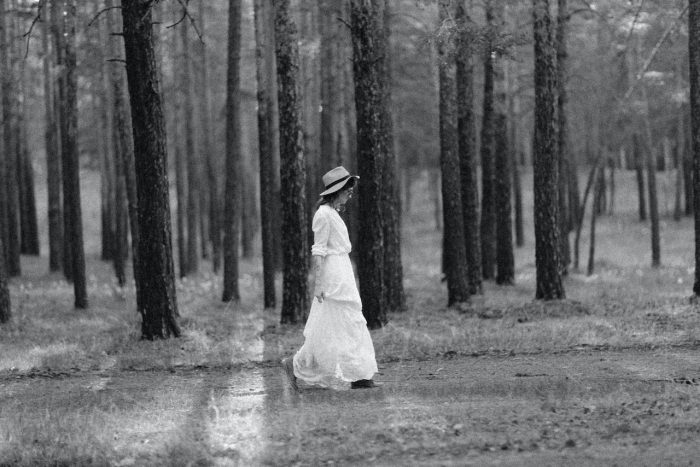As a kid, I remember when someone passed away, people stayed at the home of the deceased for 13-15 days.
They provided support until Tehrvi—final day of mourning.
This time period of 13 days in Hindu, North Indian homes, is when the grieving started, which is (generally) the day a person died. This was considered a form of healing and distraction for the grieving-family.
It’s not just in India, but even my Jewish friends in New York City talk about the tradition of “Sitting Shiva.” Shiva is the week-long mourning period in Judaism for first-degree relatives. During this time, mourners come together and share stories. This is considered the time for emotional healing. When a friend’s father passed away, we brought bagels to his Shiva.
I am not here to argue for or against any traditions or cultures. There is merit and challenges in everything, depending on how you can navigate any situation and your family background. But I will say one thing with confidence: grief is exhausting. And unprocessed grief is even more depleting.
My friends in India are in awe and shock that despite living in New York City, for the past two months, we have had nonstop local and out-of-town visitors making condolence calls on weeknights and weekends. “People don’t even do this in India,” a few tell me. “Having people over is the best way to heal,” a few others quipped. “It keeps you away from the pain.”
My friends in the United States remind me, “To heal, you must be alone. You must feel your angst.” A few of my psychotherapist and psychologist friends talk about the need for solitude in grieving. “You need time to process your grief. That doesn’t happen when you constantly have company.” The lady at the eyebrow threading salon, a firecracker from Mumbai, said to me, “Have people not heard of phone calls to express their condolence? There is no help in the United States. People making visits equates to you taking care of them. Didn’t you offer nonstop caregiving for two years?!”
I wish there was a balance between the two extreme cultures in navigating grief.
I have noticed that in India, people rarely ask what you need. They assume your requirements and unabashedly share advice. I have seen that when my mother passed away. When one of my best friends lost her son to an accident. When one of my close friends lost her mom during the pandemic and another, her father. When we recently cremated my father and father-in-law.
People rarely enquire about those grieving, what would work best for them. In the U.S., all suggestions around healing include building boundaries, nurturing me-time, and finding your inner pathways. I get where it comes from, but I also believe loneliness has become an epidemic in the United States because people give each other too much space.
Even though I am an extrovert and recharge around others, I do require a lot of alone time to refill my cup. My husband is a man of few words, and though a hospitable fellow, he too enjoys his quiet and personal space. We haven’t yet had the time to process our grief fully. We are still recovering from our cross-continental caregiving responsibilities and continued to be wiped out from continued hospitality for our visitors.
Life isn’t black and white neither is healing. Sure, it’s not been easy managing home, work, grief, and guests. There is no in-built support system in the United States. Many of us have part-time help, but you, the man and the woman of the house, run the main show. Be it getting groceries or organizing the house or the cooking or the cleaning or sharing stories of loss. In between, our bodies collapsed, and both my husband and I fell sick too.
Our bones might be depleted, but our hearts are filled with gratitude for those who didn’t abandon us during our toughest times. Our minds and emotions feel balanced. People carved out time from their busy schedules to show support, bring flowers, hugs, food, and undivided attention.
There is so much appreciation for the love we have received, but you can’t deny the exhaustion that comes from constantly meeting people and talking about loss. The hugs from loved ones and warm memories of my deceased father nourishes me. He meant so much to so many people. But it also opens raw wounds that had just begun to heal. Just when I think I am ready to go to the next chapter of life…a comment or a memory or a mention of him by our visitors cruelly brings me back to reality: I am a middle-aged orphan.
You can feel grateful and exhausted in the same breath. You can feel healed and vulnerable at the same moment.
It’s okay to have mixed feelings about people and visitors. Grief recovery doesn’t come with a manual. No one can predict how or when your grief will feel less intense or get triggered.
Instead of labeling your grieving journey, start experiencing one day at a time. Carve out the time to process your grief, practice self-care, and appreciate people who show up for you. If there are days you can’t handle visitors, communicate with honesty and kindness. More importantly, don’t judge yourself for the multitude of feelings that arise.
“The reality is that you will grieve forever. You will not ‘get over’ the loss of a loved one; you will learn to live with it. You will heal and you will rebuild yourself around the loss you have suffered. You will be whole again but you will never be the same. Nor should you be the same nor would you want to.” ~ Kubler-Ross
~
Please consider Boosting our authors’ articles in their first week to help them win Elephant’s Ecosystem so they can get paid and write more.












Read 8 comments and reply